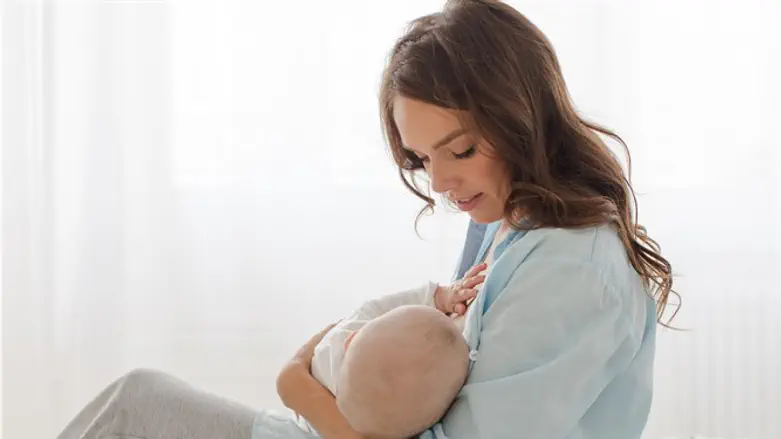
A new research by Tel Aviv University and Ichilov Hospital in Tel Aviv showed the vaccinating nursing mothers against coronavirus creates antibodies that pass into her breastmilk and which may offer protection for the baby.
The research staff included Tel Aviv University's Dr. Yariv Wine and doctoral student Aya Kigel, and was led by Ichilov's Dr. Michal Rosenberg Friedman and Professor Ariel Many. The study was funded by a Health Ministry grant.
According to the researchers, the purpose of the study was to determine if vaccination via the Pfizer-BioNTech vaccine is effective in creating antibodies which pass into breastmilk, and what the quality of such antibodies was - i.e., whether they are capable of neutralizing the virus.
"The predominant serum antibody was IgG. The response in the breastmilk included both IgG and IgA with neutralizing capacity," the authors wrote in the study.
The study, which took place in January and February 2021, included ten breastfeeding women. The volunteers received two doses of the Pfizer-BioNTech vaccine, spaced 21 days apart, and their breastmilk was checked for antibodies at four different times following the vaccinations.
The study showed that the rise in antibody levels in their blood and breastmilk was well-synchronized, with a significant rise in levels in both blood and milk occurring fourteen days after the first dose, and continuing to rise seven days after the second dose.
In addition, the researchers found that the antibodies in breastmilk are able to neutralize the virus, as well as prevent the virus from connecting to receptors on the cells, and are important in preventing infections.
"This encouraging data shows that vaccinating nursing women against coronavirus encourages the production of important antibodies in their breastmilk, which may help protect the nursing baby," Dr. Wine said.
The research has not yet been peer-reviewed.

